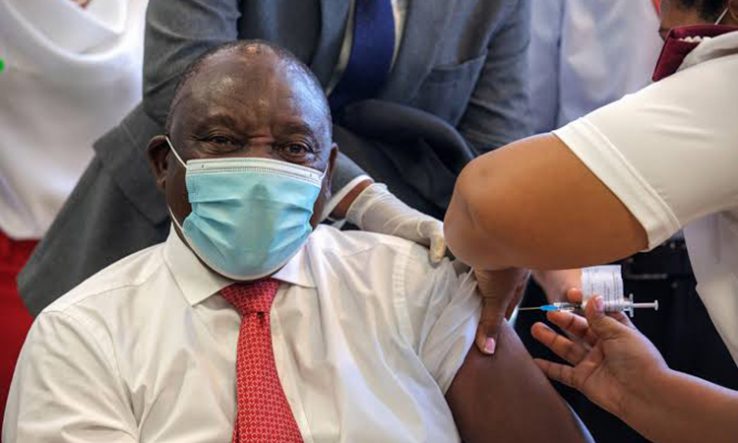
Image: South African Government [CC BY-SA 4.0], via Wikimedia Commons
But the country has not seen cases of rare clotting disorder
South Africa has temporarily suspended its rollout of the Johnson & Johnson Covid-19 vaccine after reports from the United States of blood clot disorders in six of the more than six million Americans who have received it.
The South African Medical Research Council said on 13 April that it had not seen any cases of the specific abnormal blood clotting linked to the vaccine in the US among the nearly 300,000 recipients of the vaccine in the country.
However, it said it would halt its rollout “out of an abundance of caution” until further information is available.
South Africa is only offering Covid-19 vaccines to healthcare workers, who have been receiving the Johnson & Johnson jab as part of a clinical trial while the country waited for the national medicines regulator to approve the vaccine for rollout.
Johnson & Johnson is currently the only Covid-19 vaccine on offer in South Africa. The country halted a rollout of the AstraZeneca vaccine earlier this year because early-stage data from clinical trials in the country suggested the vaccine may not be effective against the country’s dominant coronavirus strain.
The SAMRC said it had been closely monitoring side effects as part of its Johnson and Johnson trial. “We have noted some thromboembolic events (clotting events where the clot breaks off and travels to another part of the body to block a blood vessel) but none of these have been associated with the features described in clinical syndrome of thrombosis in the presence of thrombocytopenia (low platelet counts).”
This combination of symptoms has also been observed with the AstraZeneca jab, which uses the same clinical mechanism to create immunity. Despite being extremely rare, this observation has led to that jab being offered to older adults only in some parts of the world, as most of those who have experienced the blood clotting disorders have been young women.
Briefing Parliament on 14 April, the Department of Health head of regulation and compliance, Anban Pillay, said: “Pausing the study is an opportunity for us to look at whether these adverse events are linked to the vaccine, and if they are, what groups are affected. Is it a particular age group or other factor that predisposes them to these types of clots?” He hoped the suspension would be for a short time only.